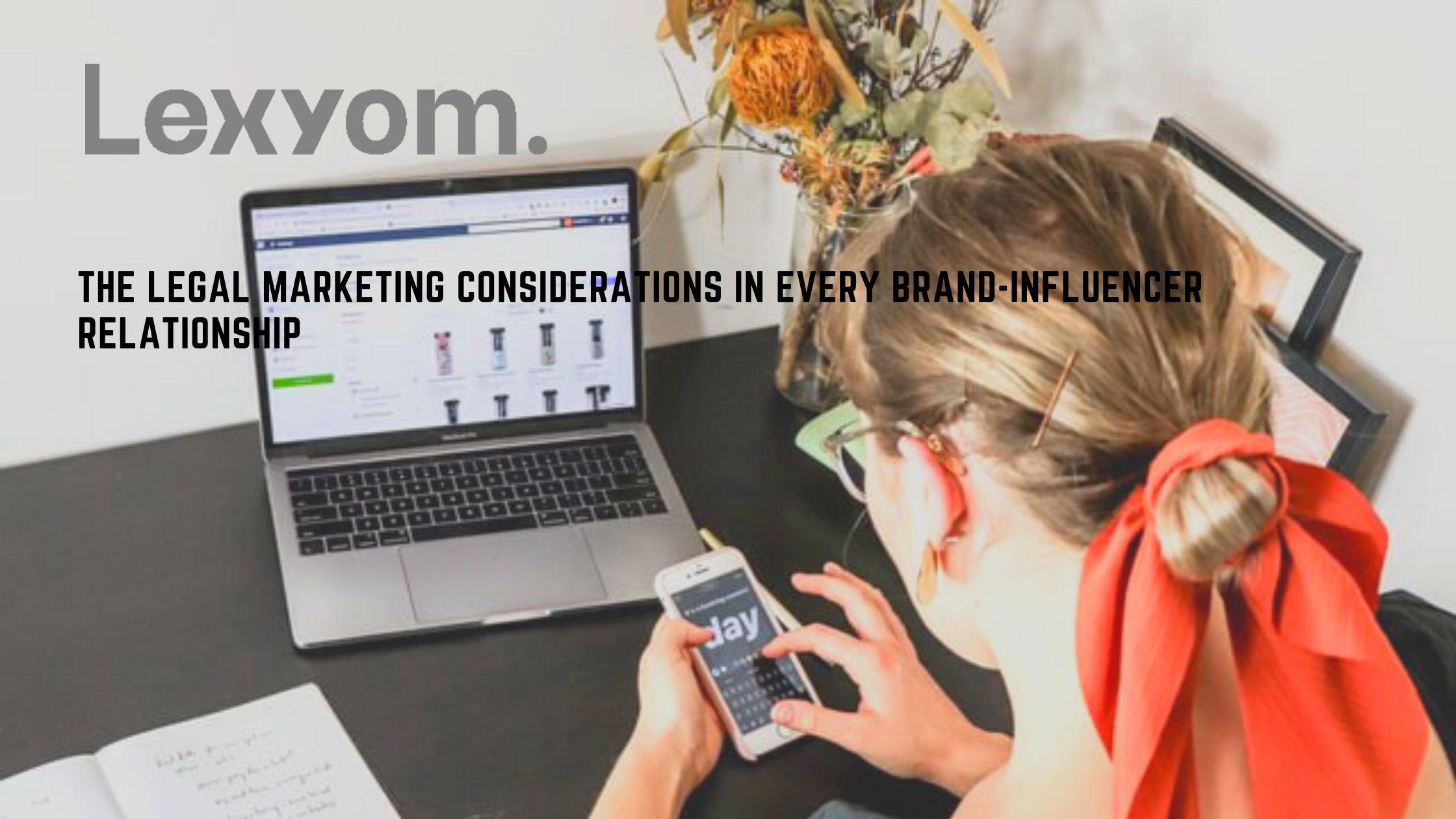In the last few years, social media, or more specifically speaking, social media influencers, have been leaving a significant impact on their followers, especially when making purchase decisions. They are switching their followers’ opinions to become more likely similar to their opinions. This is why brands are essentially focusing on the so-called “Influencer Marketing” by collaborating with influencers to advertise their products or services through their social media platforms.
Even though this is a flexible and effective marketing strategy yet, the brand-influencer relationship is not as simple as it looks. In this article, we will provide an overview of the legal considerations brands must be aware of when entering into a partnership with a social media influencer.
Before entering into the legal perspective of such a relationship, brands must choose the right influencer to sponsor their products or services. This means that as a brand owner, you should know your influencer to identify if their follower base fits the products or services you are looking to advertise. For example, you cannot ask a food blogger to sponsor your makeup brand; instead, such a blogger can sponsor restaurants and coffee shops. Additionally, look at their last post to see if they have ever posted anything racist, sexual, or inappropriate or offensive posts. If you miss this, you might lose some of your customers.
Now when it comes to the legal perspective, here’s what a brand owner must be aware of to have a rock-solid agreement defining all the essential details in a brand-influencer relationship.
- Make sure that the agreement mentions all the deliverables and services the influencer will provide. For example, specify the product they will be sponsoring. Social media platform, how many posts, dates, and times of the posts. Also, specify that your brand is allowed to repost and promote its posts. If you are expecting a live webcast, specify the date and the time of this webcast, specify whether it’s an audio or a video presentation and whether such webcast will be available on your website or no, etc.
- Follow the Federal Trade Commission (FTC) guidelines. The FTC is an independent agency of the U.S. government whose aim is to protect consumers from abusive business practices by enforcing consumer protection and antitrust laws. As a result, the FTC tracks how social media influencers sponsor products or services on their page. Therefore, when working with social media influencers, ensure that the required FTC disclosures are met. For example, if an influencer posts about one of your products, they should use phrases like “#sponsored” or “#ad” to disclose to consumers the existence of a paid arrangement with your agency. Moreover, the FTC regulates any false or misleading statements in social media content. You should ensure that any information posted on behalf of your brand does not include any false or misleading information that could open the door to potential lawsuits.
- Add a moral provision in your agreement. Such a clause will allow you to terminate your relationship with the influencer any time without any compensation, in case the influencer executed bad acts that might damage your brand’s reputation, such as illegal acts, shared unethical posts, or did not comply with social media policies.
- Protect your intellectual property. The agreement should specify who owns the content created and how the influencer can use it. Typically, the influencer owns the content created for posts; however, this content and the influencer’s image, name, voice, likeness, signature, voice, quotes, biography, photographs, and video, etc., will be licensed to the brand. Additionally, suppose the influencer will be collaborating in the design of products. In that case, the agreement should contain a “work for hire” provision that assigns the ownership of all the influencer’s rights in these products and materials to the brand.
- Make sure to mention an exclusivity clause. As a brand owner, you should ensure that the influencer will not be promoting similar products to your brand, typically a competitor’s brand. The scope and duration of any exclusivity restrictions should be clearly defined. Not to mention that such restriction could also include, if appropriate, not wearing products of competing brands.
- Make sure the selected influencer is legally complying. This means, today, many countries enforce social media influencers to get a license that allows them to practice influencing inside their territories, such as the United Arab Emirates. So, make sure your influencer has obtained this license because you don’t want to do business with someone illegally practicing her or his job.
Whether you’re a brand owner signing an agreement with a social media influencer or vice versa, you can always get in touch with lexyom.com, book an online consultation with a lawyer and make sure you’re on the right legal track.







